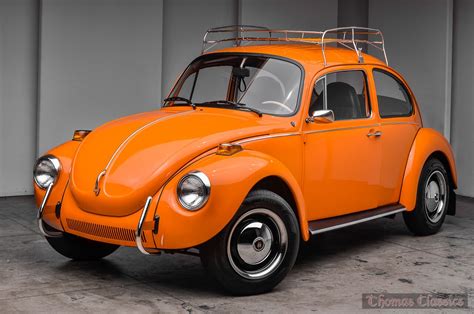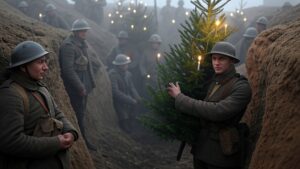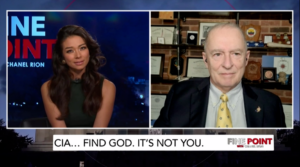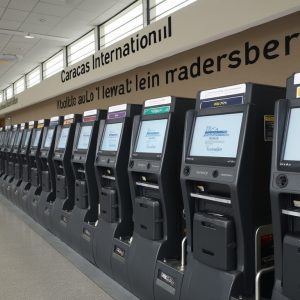by Jeemes Akers, Senior Fellow, Americans for Intelligence Reform
Adventures In Volkswagen Land
“A car for the people, an affordable Volkswagen, would bring great joy to the masses and the problems of building such a car must be faced with courage.”
Adolf Hitler
“What good is a beautiful dame with a Rolls-Royce frame, and a Volkswagen brain?”
J-Ro
They say that human males in the United States have an affinity for automobiles.
If that is true, I loved my Volkswagen.
I bought it with the bonus combat pay I had saved from flying (crew member and Chinese linguist) during the Vietnam War. Eight flights a month from Okinawa to the Tonkin Gulf. When I returned home, I paid $4,000 cash for a brand new 1974 powder blue Volkswagen Super Beetle.
Best investment I ever made.
Over the following years, my Super Beetle brought me through one crisis after another. Periodically, I used to make the drive from my apartment in Fort Worth, Texas (I attended graduate school at Texas Christian University on the G.I. Bill) to my parents’ home in Springboro, Ohio. Exactly 1100 miles. I drove it all the way. Straight through. I remember one time, when I was especially down on my luck, I made the trip (one way), on less than $15, including a McDonald’s hamburger and fries!
Try doing that today.
Now, you can’t even get out of McDonalds parking lot for less than twenty bucks. I can remember when you could get a burger there for a nickel.
“Sigh.”
My bug accompanied me when: we wrapped a very pregnant Imogene in a hospital blanket for a nervous half-hour mountain drive to Paintsville, Kentucky (because Imogene insisted Dr. Grino deliver our baby); to carry Imogene and my first Christmas tree (a true Charlie Brown Christmas tree for our little house on the campus meadow—with branches sticking out both windows in the frosty winter air and Ima and I scrunched up into the windshield); when I slept all night in the front seat near Hyden, Kentucky, waiting for the gas station to open in the morning (no 24-hour self-serve stations in those days); when I would fall asleep at the wheel on long distance drives; when flying down the final descent on I-75 entering Cincinnati with Dr. Barkley Moore nervously pumping the brakes on the floorboard in the passenger seat (that was before they straightened out the curves—it was impossible for the bug to tip over); late one icy winter night when I was rushing to get back to campus and plowed into a huge pile of snow at the foot of Caney Mountain near the mouth of Short Fork (I jumped up and down on the bumper until the bug dislodged); when the engine stopped on Jack’s Creek Mountain and Cecil Huff (Madeline’s dad) stopped, pulled out some wire, hit the engine a couple times and she coughed back to life; when listening to music as loudly as possible (after Big Greg installed two oversized speakers and wolfers in the door panels); and, …
Well, I think you get the picture. My Volkswagen always treated me far better than I treated it.
As much as I loved my bug, it had two major idiosyncrasies: you could never adjust the heat levers properly (wasn’t a problem during those many years sweltering in the Texas heat) and the gas gauge (you could run forever on a tank of gas but you had to keep track, because the gauge needle would hover close to empty for a few microseconds and then hop back up to a quarter-tank). You thought you had plenty of gas when you were running on fumes. It could prove embarrassing—once Gary Gibson was riding with me and we ran out of gas on our way to the finals of a county volleyball tournament (we were both key players), and once during law school, when providing a ride to fellow students Big Tim and Craig (neither one fully appreciated the humor of the situation).
That fickle gas indicator hopefully sets the stage for my very favorite story about the blue Volkswagen …
The incident took place, of course, during my grad school years.
My “wild” period.
On the weekends, when we weren’t playing softball tournaments or running the local pubs, a group of us used to play poker. Dealers choice. The more wildcards the better; high and low Chicago, Mexican sweat, match the pots, etc. I played pretty good poker during those days. I had to. Sometimes it was the difference whether or not I could buy a box of Wheaties for breakfast.
One evening a new player joined our ranks. His name was John Allen. As we chatted during the game, I discovered we shared a Kentucky background and both of us were Vietnam veterans. In addition, we both sported scrubby beards. As the evening turned into the early morning hours, John—whose relationship with his live-in girlfriend was going down the tubes—said, “if I could find someone to go with me, I’d leave Fort Worth, find someplace up in the Rocky Mountains to live and find a different woman…”
At the time, my own relationship with my high school sweetheart was likewise on the rocks (that is the subject of another missive).
So, I looked John in the eye. “I’ll give you an hour to think about what you just said and make sure it is not the beer talking. If you are serious, it will take me two days to make arrangements, and we’ll pull out of here Wednesday morning. We can take my blue Volkswagen and we’ll head to the mountains until we find a place to work and live, or until our money runs out.”
John didn’t hesitate. “Let’s do it.”
On Wednesday morning, I threw a bag with my clothes and shaving gear, backpack and sleeping bag in the rear seat. My neighbor took care of the cat. In the front of the Volkswagen, John put a box of tools (he was a Volkswagen mechanic) and also tossed his stuff in the back.
I took the first shift behind the wheel and we headed northwest, through Texas and toward the mountains. When I got real sleepy, I turned over the wheel to John and fell asleep in the passenger seat.
I forgot to tell John about the gas gauge.
I woke up to the distinct sound of my Volkswagen sputtering—out of gas.
“Where are we?” I asked.
“No idea,” John answered as he coasted to a stop off the road.
(This was long before the age of cellphones or GPS).
“Have we passed through any towns?”
“Nope.”
“Seen any cars?”
“Nope.”
“I guess one of us has to go get some gas.”
“Yep. The other needs to stay with the car.”
“Sounds reasonable,” I said. “Sorry about the gas gauge.”
“No worries Mate. Life is an adventure with unexpected twists and turns. Toss a coin to see who goes?”
“Sounds fair,” I replied.
Of course, I have never won a flip of the coin when all the chips were down. And I didn’t win this one either. (Nor, by the way, had I ever hitchhiked before).
“Well, which way should I go do you think?”
“No idea,” John said. “Here you may need this.” He handed me a knife in its sheath to tie around my lower leg.
I picked a direction and started to walk, wearing a hat to shield me from the blazing early afternoon Texas sun. It was so hot that the telephone poles shimmered in the distance. The black ribbon of the road stretched endlessly ahead. The Volkswagen, and John sitting under the shade of a mesquite bush, disappeared behind me.
I walked. And walked. And walked.
Finally, I heard a sound approaching behind me. It came closer.
After what seemed to be an eternity, the vehicle came close enough that I could see it was a pick-up truck. I turned, flashed a smile, and stuck out my thumb (like I had seen them do in the movies).
The truck passed me without slowing down.
Just my luck.
Then I saw the brake lights and the truck pulled over to the side.
I sprinted down the road before the driver changed their mind.
Hot, sweaty and out of breath, I approached the faded green Ford pick-up from the passenger side.
To my surprise the driver was a woman.
“Get in,” she shouted over the noise of the engine.
As I pulled open the door, a German shepherd snarled, bared his fangs and growled.
It was definitely not the reception I had anticipated. In fact, it scared the bejeezers out of me.
“Get in hon,” she said with a soft southern accent, “he won’t hurt you.”
I settled uneasily into the passenger’s seat.
“Thanks so much. You’re a lifesaver,” I said.
The dog took up most of the floor. Every time I so much as moved my large toe, he would snarl again.
“Where are you going?” I said, trying to engage in small talk to make the best of the situation.
“I’m really not sure,” she said, with a trace of sadness in her voice.
That is a strange response.
“Is there a town close by? Our car ran out of gas …”
“The blue Volkswagen? I passed it a couple miles ago.”
“Yep, that’s the one,” I said with a smile.
“I’m just sort of driving in this direction, never been this way before,” she said as she glanced in my direction.
She had long brown hair wrapped under a rebel flag bandana. Freckles dotted her cheeks. She had a pretty but not beautiful face. Her eyes were brown and swollen. It was obvious that she had been crying. A lot.
Again, let me remind you of my personal situation. I was trying to apply emotional band-aids to my own broken heart. I had, more or less, turned my back on God (how could He allow this to happen); avoided all contact with family (I was ashamed); tried to put on a happy face to disguise the hurt to others around me; had drifted into an unscriptural lifestyle; and, rather than face the consequences of a deteriorating relationship, had opted to flee. That’s why I agreed to John’s trip proposal in the first place.
In other words, I was a broken vessel.
I don’t know why God delights so much in using broken vessels.
Dear Lord, I’m in no position to ask, but please give me the words this lady needs to hear.
“I sense you are very unhappy,” I began haltingly, “would you grant me the extraordinary privilege of praying for you?”
She nodded, sobbing. Tears poured down her cheeks.
I don’t remember the words of the prayer—they were really not my own—but they were like a soothing balm for her fractured spirit. Words, in fact, that my own wounded spirit needed to hear.
Isn’t it amazing how God does that? If you are sick, pray for others to be healed. If you are in financial stress, give more to God and others. If your children are disobedient, cover them with prayer and love.
As time passed and the miles unfolded, she told me her story. Everyone has a story. We just need ears attuned to listening. Her name was Mollie. The hurt tumbled out in emotion-laden gushes, lubricated by her tears, one wound after another. She had been a pastor’s wife in a small church. Then her husband’s affair with a secretary that was younger and prettier than her. No children—two miscarriages. Suddenly alone. Ashamed to turn to her family for help.
My words of comfort poured out like an anointing balm. Where did that thought come from? Even the dog stopped growling.
A God moment.
We talked. I listened. She listened.
Eventually, we noticed an old gas station—in the middle of nowhere—on the roadside ahead. She pulled the pick-up over. “Thanks again for the ride,” I said as I tumbled out the seat.
She smiled and nodded.
I waved as she drove away.
The interior of the gas station looked like something from a grade “B” horror movie. Scattered fragments of light fought their way inside through a half-closed screen door and brownish smudged windows. A noisy overhead fan tried—unsuccessfully—to chase the heat away. A lattice of spiderwebs decorated antique wooden shelves loaded with old, rusting canned goods. Long, caramel-colored strips hung from the ceiling, loaded with dozens of flies trapped in the stickiness. The wooden floor rolled with age.
As my eyes grew accustomed to the light, I noticed a large, very large, man sitting behind an old, dust-covered counter. Uncombed tufts of hair interrupted his mostly bald scalp. His cheeks sported a noticeable three-day growth. His eyes were empty orbs. He wore a dirty t-shirt and overall jeans. One strap was unbuttoned.
A long, thick string of tobacco spit dribbled down from one side of his mouth.
I didn’t need a psychiatrist’s couch to tell me that his elevator didn’t go all the way to the top floor.
“I ran out of gas a few miles back,” I said with my friendliest tone. “Do you have a can I can use to carry enough gasoline back to get my car back here? I’ll be glad to pay for it.”
He gave me no indication that he had the slightest idea of what I was talking about. Instead, with a grunt, he pointed toward the back door.
Out back, I found a huge pile of discarded auto parts and rusted cans of all sizes and description. I picked one that I thought could hold enough gas, yet small enough for me to carry back to the Volkswagen.
“How much do I owe you?”
Again, no response.
I threw a ten-spot on the counter, then walked outside to the old gas pumps and filled the can half full of gas. Then I started back toward the car.
The gasoline station had barely disappeared from view when I heard a familiar sound. Mollie’s faded green pick-up pulled alongside.
“I started feeling guilty,” Mollie said. “That is a long walk back.”
I placed the can in the truck bed, hopped back in. The growl was softer.
We picked up our conversation where we left off.
The sun was getting ready to set when we finally made it back to the Volkswagen. John was still asleep. I gave Mollie a hug goodbye. She kissed me on the cheek. “God bless you,” I said, closing the door and grabbing the can.
I stood there for a long time as the truck disappeared in the distance.
I remember it all like it was yesterday. On occasion, I still say a prayer for Mollie.
When did all this happen? Mid-August 1977. How can I be sure? Two days later, as John and I were driving across Colorado, we stopped by a country restaurant for breakfast. On the black-and-white television over the counter came the news: Elvis Presley—the “King” himself—had died at Graceland, his Tennessee mansion.
Now, as Paul Harvey used to say, “the rest of the story.” After three weeks of climbing mountains, sleeping in a pup tent, floods, near disaster in encountering a bunch of drunken cowboys in their pick-up trucks, learning how to sleep like a baby in a sleeping bag on top of a picnic table and taking sink baths at roadside stops, John and I limped back into Fort Worth, like two whipped puppy dogs with their tails tucked between their legs. John went back to his girlfriend. I was “alone again—naturally.”




